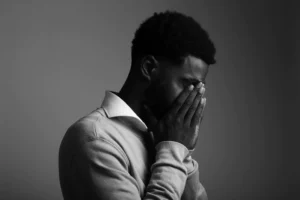There are many victims of abortion: the unborn child snuffed before it can reach his potential; the mother who must endure a physically, emotionally and spiritually devastating procedure; and society in general, where a life is worth less than the inconvenience of an unwanted pregnancy. But perhaps no victims of abortion have been more ignored than the fathers of the aborted.
There are about 1.5 million abortions every year in America in large part because it’s presented as a solution to unwanted pregnancy. The stereotype surrounding men in unwanted pregnancies is that they are in favor of abortion. And indeed there are plenty of men who coerce, manipulate and pressure the mother into an abortion. But it’s simplistic — and wrong — to pretend this is always the case. Many fathers involved in unwanted pregnancies are ready to accept responsibility for their children.
My friend Nick (names have been changed in this story) is one of those guys. Allow me to share his story.
Nick was 22 years old and a junior at a small Christian college when he met “The Freshman.” He and his buddies had given Samantha that nickname because she was the best-looking newcomer to their school that year. The school’s dating pool was small and Nick and Samantha connected because they shared a home state. In a matter of months they were a couple. The two decided to drive home together for Spring Break; that decision changed their lives forever.
During Spring Break, Nick crashed on the living room couch at Samantha’s parents’ place. A Christian guy who was trying to do the right thing (although he had been sexually active in the past), Nick wasn’t looking for sex. But he and Samantha quickly found it when she crawled into his sleeping bag early one morning. Even though both of them knew this wasn’t God’s design for their relationship, they had sex for the first time that morning. “It wouldn’t surprise me if the child was conceived that first time,” Nick says.
About six weeks into the relationship Samantha told Nick she was pregnant. In that instant, the whole dynamic of their relationship radically changed. One night they had been discussing the trivialities of dating — do we go to the movies, to dinner, or to shoot pool? Now they were asking, “What are we going to do about this pregnancy?” and “What are we going to tell our parents?”
The pressure was intense for Nick and Samantha. The social sanctions on being unmarried and pregnant are hard enough in everyday society, but at a conservative Christian college it’s a secret that can eat people alive. Nick felt alone. “I had no idea who to talk to,” Nick says. “It’s not like there’s a ‘Miss Manners’ book on the subject.”
Nick was sure about one thing: he would accept full responsibility for the pregnancy and provide for his child. He would love the baby, take care of it, and even raise it if he had to. He would support Samantha through the pregnancy, too. “The way I was brought up, you always accept the consequences of your actions,” Nick says. “You mess around and get pregnant, you don’t just do away with the consequences.” Meanwhile, Samantha wanted an abortion. “I was dead set against it, I always was,” Nick says. “I said, ‘I can’t support you in that.’ I said that countless times.”
But Samantha didn’t need Nick’s support because the decision about the abortion was hers to make — her body, her choice. Thanks to Roe v. Wade, fathers of unborn children have no legal right to decide if the child they helped conceive will live or die.
The double standard confronting men is that they’re to take responsibility for the child, but the woman doesn’t need to consult them to abort that same child, says Linda Dean of the Women’s Resource Center of Southern Nevada. Dean has seen a lot of cases like Nick’s. She has a master’s degree in Marriage and Family therapy and has worked with thousands of women and men who are dealing with abortion. In her 20 years of counseling, she’s often had men call her, saying their partner wants to abort their child. She can counsel them, but there’s really nothing that can be done to enforce a father’s right to be a father.
At the end of the school year, Samantha told Nick she didn’t want to see him anymore and ended the relationship. But not before asking him to pay for the abortion. “I’m not going to pay for something I don’t believe in,” Nick told her. “I’d rather pay for raising the child.” Samantha called Nick within weeks to give him the news — she had aborted their child. She didn’t come back to school the next fall and Nick never saw her again.
When Nick first heard about the abortion, he felt angry because of his powerlessness. It’s a reaction consistent with what most men feel after an abortion, according to Dean. She believes men feel this way because God created women to be nurturers and men to be protectors. Thus, abortion goes against a man’s nature and rips him apart inside. The anger — which Dean says is rarely dealt with in a healthy way — devastates men individually, but it also has implications for our collective society. The anger we see in society every day — road rage, frequent mass shootings, etc. — could be partially attributed to emotions associated with abortion that have been ignored, Dean says.
Nick experienced many other negative results from the abortion. He feared that people won’t accept him if they find out about the abortion. He had trouble trusting women and maintaining relationships — a dozen years later he’s still single. Nick also struggles with guilt, he says: “There are times when I look at other kids and I think, ‘I could have a 12 or 13-year-old.’” Nick says that the effects of the abortion will be with him for the rest of his life.
The number of abortions per year has been relatively consistent, meaning that about 15 million fathers have been affected by abortion in the past decade. Men who have their children aborted against their will may be more aware that their negative emotions stem from the event, Dean says. This may help them in dealing with the emotions. Men who supported an abortion still suffer emotionally, she adds, but sometimes it doesn’t surface for five, 10 or even 15 years after the abortion.
This happened to my friend Doug, who was supportive of his girlfriend’s abortion and paid for the procedure. Doug couldn’t explain the anger and confusion he felt after the abortion. And after he and his girlfriend split up — which happens to most post-abortion couples — he didn’t think about it anymore. Ten years later, Doug ran into his ex-girlfriend in a coffee shop and immediately broke down weeping. All the pain and guilt from the abortion washed over him that day, he says. From that day forward he’s dealt with the same symptoms Nick experienced.
While abortion’s effect on millions of men is palpable, so far it’s been virtually ignored by society. “There’s a societal pressure on men not to whine and cry,’’ Dean says. Moreover, she adds, after an abortion men and women are assured that they shouldn’t feel bad and that they did the right thing. These assurances that they’re OK, given to people after they’ve gone through an abortion, actually produce the opposite result. “We’re telling people who are experiencing these feelings that they shouldn’t be feeling these things,” Dean says. “So they must be crazy — right? We’ve done this to men for decades.”
Nick’s healing has only come through his relationship with God and counseling. “I’ve been blessed by the ability to have faith in God, believe his Word completely and know that His grace does go there,” he says. “You have to believe in God completely to know that you’re forgiven from that.” He still has to remind himself that he’s forgiven, but he’s gained a deep understanding of God’s grace. “In a way I’m richer, but at a horrible price,” Nick says. “I understand acceptance and healing from God.”
Dean hopes and prays that society will come to recognize the effects of abortion on men. Her organization exists to help people struggling with an unplanned pregnancy or who have already been through an abortion. They even have a ministry — one of the few for men who have been through abortion — called Forgotten Fathers. Her group has male and female counselors to talk with anyone who emails or calls.
Abortion is shrouded in shame and secrecy, but in the end the way to deal with it is to talk to someone about it. After all the people she’s counseled, Dean knows this full well. “There’s light at the end of the tunnel,” she says. “You don’t have to stay in the dark.”
Copyright 2002 Marshall Allen. All rights reserved.











